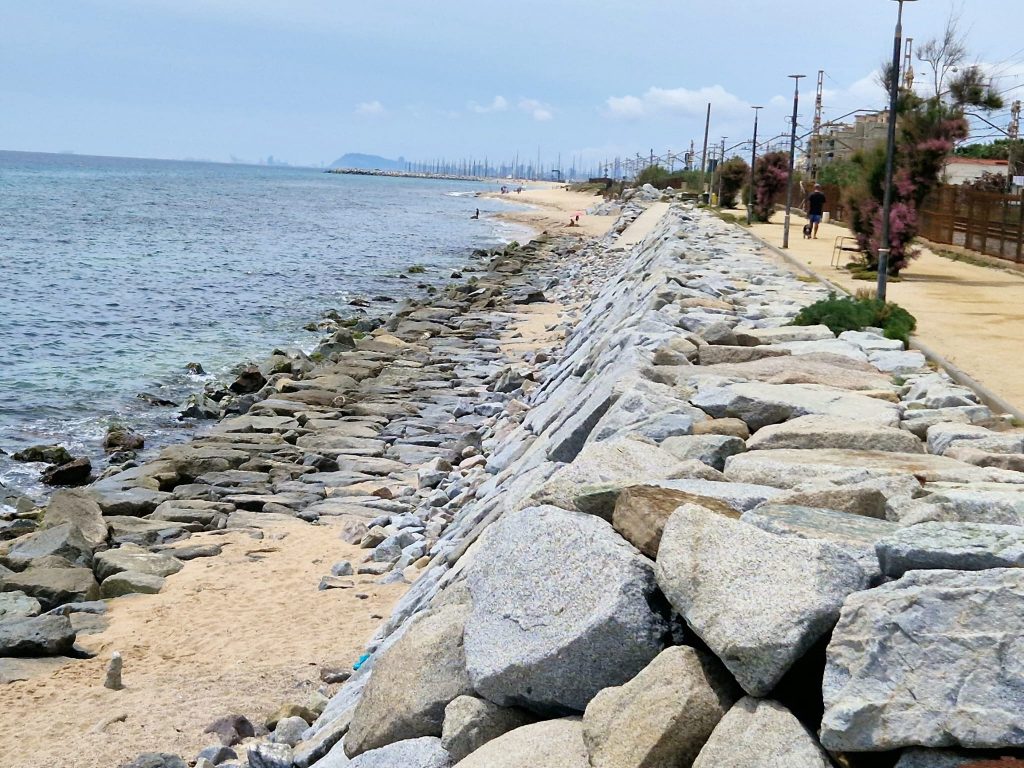Scientific and technical knowledge, a lever for change to implement political measures to protect the Mediterranean in the face of the climate crisis
The scientific and technical knowledge on climate and biodiversity crisis in the Mediterranean joins together to provide solutions, to collaborate in governance at local, regional, state and European level and, at the same time, to inform political decision-making thanks to the Mission4Nature project. The roadmap and the main objectives and challenges of the project will be presented in Barcelona on June 2023, by representatives of more than 80 European institutions and the southern shore of the Mediterranean.
The meeting includes a guided tour of the coastal area of Mataró, in the Maresme region, (Catalonia) by the specialists involved in the Mission4Nature project and the Regional Council of El Maresme, promoter of a strategic line to mitigate climate change, led by CREAF researcher Annelies Broekman. The visit is proposed as a case study to learn about coastal erosion in the Maresme, one of the effects of global change in the area.
Mission4Nature is made up of research centers, non-governmental associations, regional and local authorities, universities, environmental protection organizations, and scientific, academic and city networks from the Mediterranean, Europe and the southern shore of the Mediterranean.
Mission4Nature's partner organizations come from Europe and also from the southern shore of the Mediterranean. They include research centers, non-governmental associations, regional and local authorities, as well as universities and environmental protection organizations and networks of scientific, academic and Mediterranean cities. The initiative will last 7 years and is part of the new Interreg Euro-MED program. On behalf of CREAF, researcher Annelies Broekman is leading one of the two projects integrated in Mission4Nature.

Science and politics: co-design of actions
The will of the scientific project Mission4Nature is to contribute to the open dialogue between science and political responsibility to co-design actions, with the presence of voices from Europe and the southern shore of the Mediterranean.
As representatives of Mission4Nature, Catalina Pratico –from the Consorzio Nazionale Interunivesitrio per le Sciene del Mare–, Vera Bougiouri –from the National Technical University of Athens–, Ermioni Gialiti –from Region of Crete– and Carla Danelutti –from IUCN Med– explain that the challenge of the initiative is to "gather, aggregate and promote available knowledge and scientific results, showing the value and expected impact of good practices on policy makers". The aim of this large-scale scientific project is therefore to "contribute to a future scenario where science establishes an open dialogue with decision-makers towards policy co-design".
The scientists predict the ideal scenario in 7 years' time in terms of the influence of science and civil society towards political action: "it must consider a bottom-up and top-down approach". Both scientists assure that "we cannot imagine any growth in the region without first protecting, restoring and enhancing its natural environment and heritage".
Some key insights to situate global change and biodiversity loss in the Mediterranean region are as follows:
- The Mediterranean Sea is warming 20% faster than the global average and covers only 0.8% of the world's ocean surface. It is home to more than 17,000 marine species.
- The Mediterranean region contains more than 100 tree species in an area that constitutes only 1.8% of the world's forests.
- The Mediterranean region is the second most affected region in the world by the climate crisis after the Arctic.
- Wildlife populations in Catalonia have been reduced by an average of 25% in the last 18 years, according to data from the Biodiversity Observatory of Catalonia.
- A 20-50% reduction in rainfall is predicted for the Mediterranean basin by 2100. The current critical situation of drought opens the debate on the chronic water demand of our development model.
The presentation of the Mission4Nature project is an official event of the EU Green Week 2023. In addition, the guided tour to learn about coastal erosion in the Maresme (Catalonia) is included in the European Maritime Day 2023. Mission4Nature and its two component projects (Community4Nature and Dialogue4Nature) are supported by the Secretariat of the Union for the Mediterranean.







